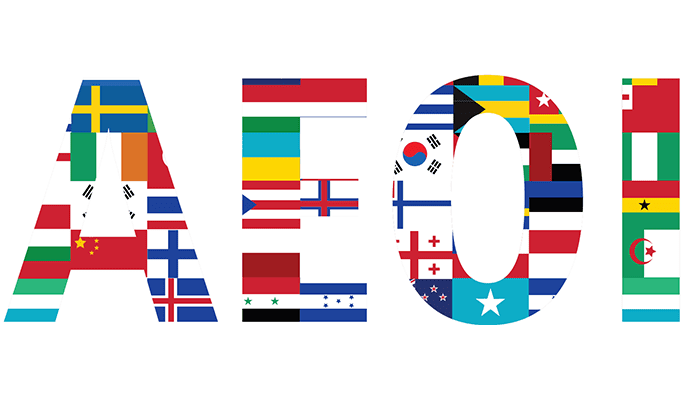
For those who are interested in paying lower taxes, can legitimately raise the question of knowing what the automatic exchange of financial information set up by the OECD, and ratified by a large number of countries including all the member countries of the European Union is going to change, this exchange will change everything about Offshore and will allow even more efficient and legal solutions, contrary to the fears that we can have.
Let’s try and start by the basics and understand what the solutions will be, because effectively from 2017 onwards, the European Union Banks will proceed with the Automatic Exchange of Financial Information, which means that if previously and since 2010, banks gave information on the request of a judge in the framework of a criminal case, thus in extremely rare occasions, henceforth it is not as it was previously a “cooperative” agreement that it acted upon request, but actually as its name suggests an “automatic” exchange.
The standard set up by the OECD is very simple, its aim is for banks to send accurate data, surnames, first names, passport numbers, account balance, interest paid, investments to the tax services of the countries of residence of their client, who will then make use of this according to their procedures , just as the system for American accounts according to the FATCA Law.
This system has been set up by bank software, which makes automatic remote transmissions through an OECD exchange platform , which transfers to 27 European Tax Departments. The standard was passed in August and November 2014, and was consequently confirmed in all the countries belonging to the European Union, and will come into effect from 2017 onwards, in other words, you will receive your European Tax Return in April 2018, since the Tax Department of your country is going to calculate directly the taxation that you owe in function with your assets abroad.
Taxation or tax-adjustments
This issue is still not clear or at least when you read the exchange standard, the OECD has not been very concerned about this issue, it will be up to each country to decide if they wish to hit or discuss, in other words, if they prefer to send you an amount of tax payable by you or to send you a tax adjustment or even a tax audit according to the tax policies of each country, it is well known for example that the Belgians are used to claiming tax, likewise for the Germans, whereas concerning the French or the Spanish prefer to sanction, but on this matter, nothing is official.
It is perhaps unnecessary to remind you, but we will do it all the same, to conserve an undisclosed bank account after 2017 in the European Union is absolutely senseless, it will have to be closed before that date.
The automatic exchange in Switzerland and Latvia and the end of banking secrecy

We have already written in a recent article that banking confidentiality has been definitely abolished in Switzerland since 2013, not only has it been reformed but moreover Swiss banks categorically refuse non-disclosed clients with a kind of hypocrisy as if Switzerland had never sheltered un-disclosed money.
The reason that led Switzerland to abolish banking confidentiality is beyond the automatic exchange of financial account information and is the result of an older approach, which is American pressure on Switzerland and the voting of the so-called FATCA (Foreign Account Tax Compliance Act) Law aiming to identify citizens of the country of Uncle Sam having accounts abroad. Already confronted with this pressure in 2009, Switzerland had thus decided to no longer only accept disclosed accounts, and banks threw out thousands of clients if they would not « regularize » their position. The fact remains, that from 2017, Switzerland like all the other countries from the European Union will declare the accounts automatically.
Concerning Latvia, it has made even greater changes, it did not have any real banking confidentiality concerning the authorities, which could at any moment, after obtain an application from a judge, any information about a bank account, Latvian banking confidentiality was more an obstacle for third parties than for the authorities, large banks in the country like Rietumu Bank, Baltikums, Pasta Banka or ABLV thus acquired thousands of European clients, whose accounts are currently being closed due to the automatic exchange of information.
Expected Offshore solutions after the automatic exchange in 2017
The following question has been raised : what is going to become of the thousands of accounts opened in Latvia or in Switzerland ? Although in Switzerland, most of these accounts have already been closed and Latvia is going to do just about the same, except this time the bank may not warn the holders.
From there, to think that company owners of overtaxed countries are going to give in easily at looking for ways of tax avoidance is a utopia!
From there, to think that company owners of overtaxed countries are going to give in easily at looking for ways of tax avoidance is a utopia! They will have to learn simple, legal and even more economic methods. Admittedly, the simple solution would be to go and open an account in countries unconcerned by the automatic exchange notably New Zealand, Panama (but it is necessary to travel there) and certain exotic islands, but there are dozens of simpler solutions, one of these wide ranging solutions is to review their country of residence for tax purposes towards a lower-taxed European country, knowing that the acquisition of a resident permit for a citizen of a country that is already a member of the European Union is a simple formality, finally it will suffice to become a Latvian, Maltese, Polish or even Swiss resident to be no longer concerned by this problem.
In the coming weeks, we will provide some examples of solutions, among which some are perfectly legal based on the remote management of a company by a local resident.
Finally, there is nothing better than meeting a client face to face, therefore Fidusuisse offers its clients to come and meet us allowing us to better understand your needs and to set up the most adapted company.
Share the post “Automatic Exchange Of Informations – AEOI, for when, and for whom, and which solution ?”
